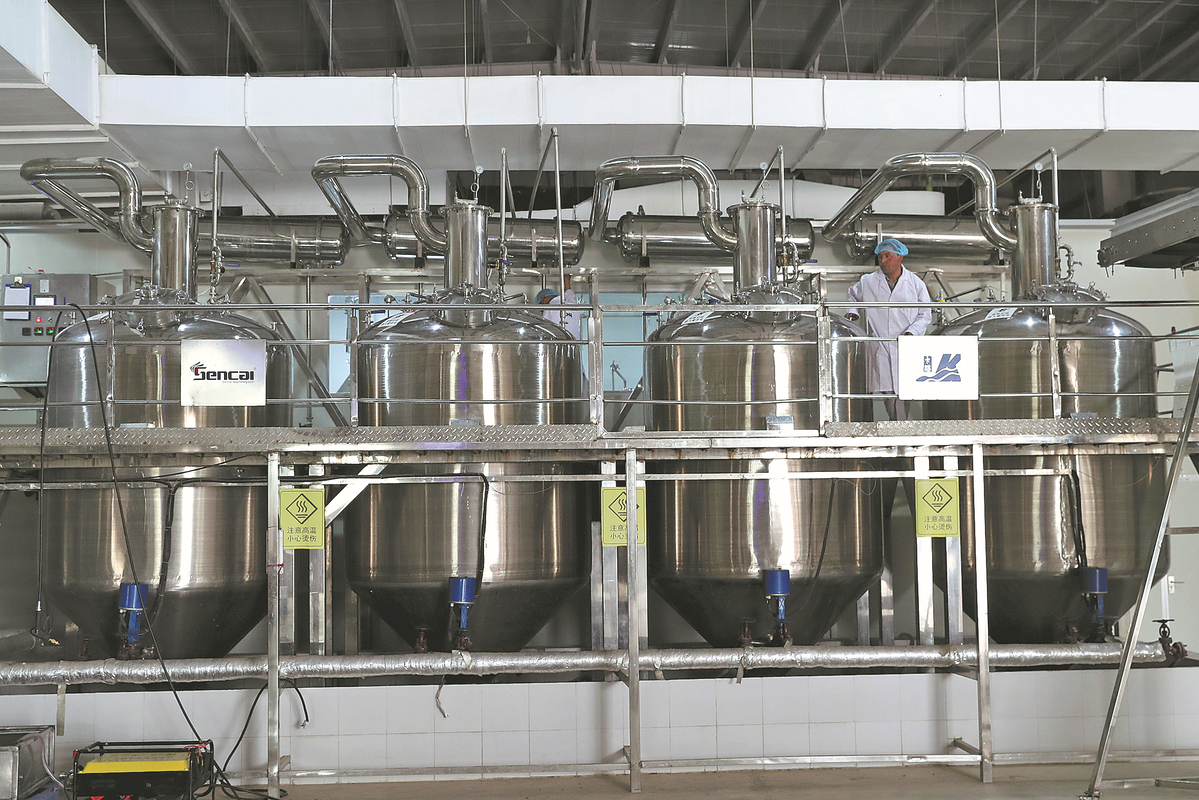Success story blooms amid desert roses


Stable income
Tohthan Sardik, 50, one of the few permanent workers on the plantation, earns 3,500 yuan a month. A wheat grower living in a nearby village, she said farmers such as herself used to "live at the mercy of heaven" — a reference to the extreme weather conditions that could wipe out already-meager yields.
"I am now happy to have a stable income," she said.
The operation has helped a region that witnesses sandstorms throughout the year. Liu, the deputy general manager, said the windbreaks provided by the poplars cover 130 hectares of land, and cost 100 million yuan.
Amina Metsun grew up living with sandstorms, which in her teens reduced, or in extreme cases, wiped out her family's wheat output. The situation has improved in recent years, thanks to afforestation and sand control projects carried out in the area, including the plantation.
Tohthan Sardik said raging sandstorms forced her parents to move from place to place in the 1960s, but she no longer has to do so.
Yan Yongjun, Queme's board chairman, showed visitors around the factory in Yutian. The first stop was an exhibition hall showcasing the local rose-growing industry and the painstaking efforts made by pioneers from the company to turn the desert into a sprawling rose garden.
An illustration board at the exhibition hall shows that the rose-growing industry in the area dates to the Western Han Dynasty (206 BC-AD 24), when damask roses, a celebrated variety, were introduced to the greater Hotan region via the Silk Road.
Another illustration board at the hall shows that Yutian benefited from melting snow in the Kunlun Mountains, with long hours of sunlight and vast differences in daytime and nighttime temperatures helping the accumulation of minerals and trace elements.
Roses also became an important ingredient in traditional Uygur medicine.
Pen-tsao Kang-mu, a traditional Chinese medicine classic written by medical scientist Li Shizhen in the Ming Dynasty (1368-1644), states that roses boast properties to bolster the metabolism and reduce tiredness. They can also help with regular menstruation and nourish the skin, the work states.
Yan said rose essence is extracted at the factory and sent to the company's partners to be made into a range of rose-themed products, ranging from wine to essential oils and lotions marketed under the Queme brand name.
He said these products are becoming increasingly popular among urban residents, and the number of products on offer and their sales revenue are both soaring.
However, the company is still striving to cover the cost of expanding and maintaining the poplar tree windbreaks.
"This is our social responsibility as a State-owned company," Yan added.























